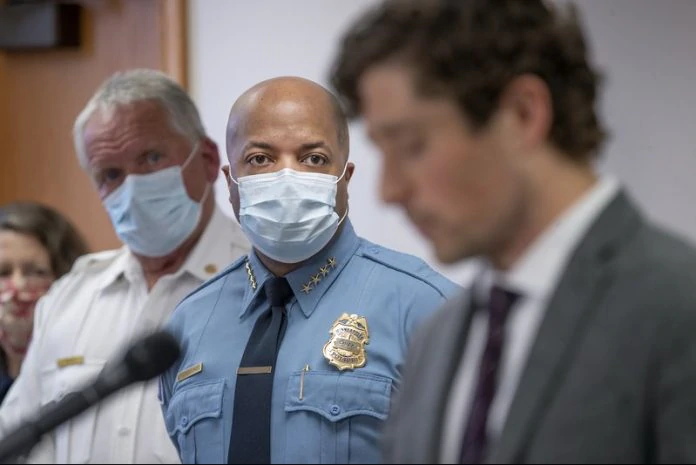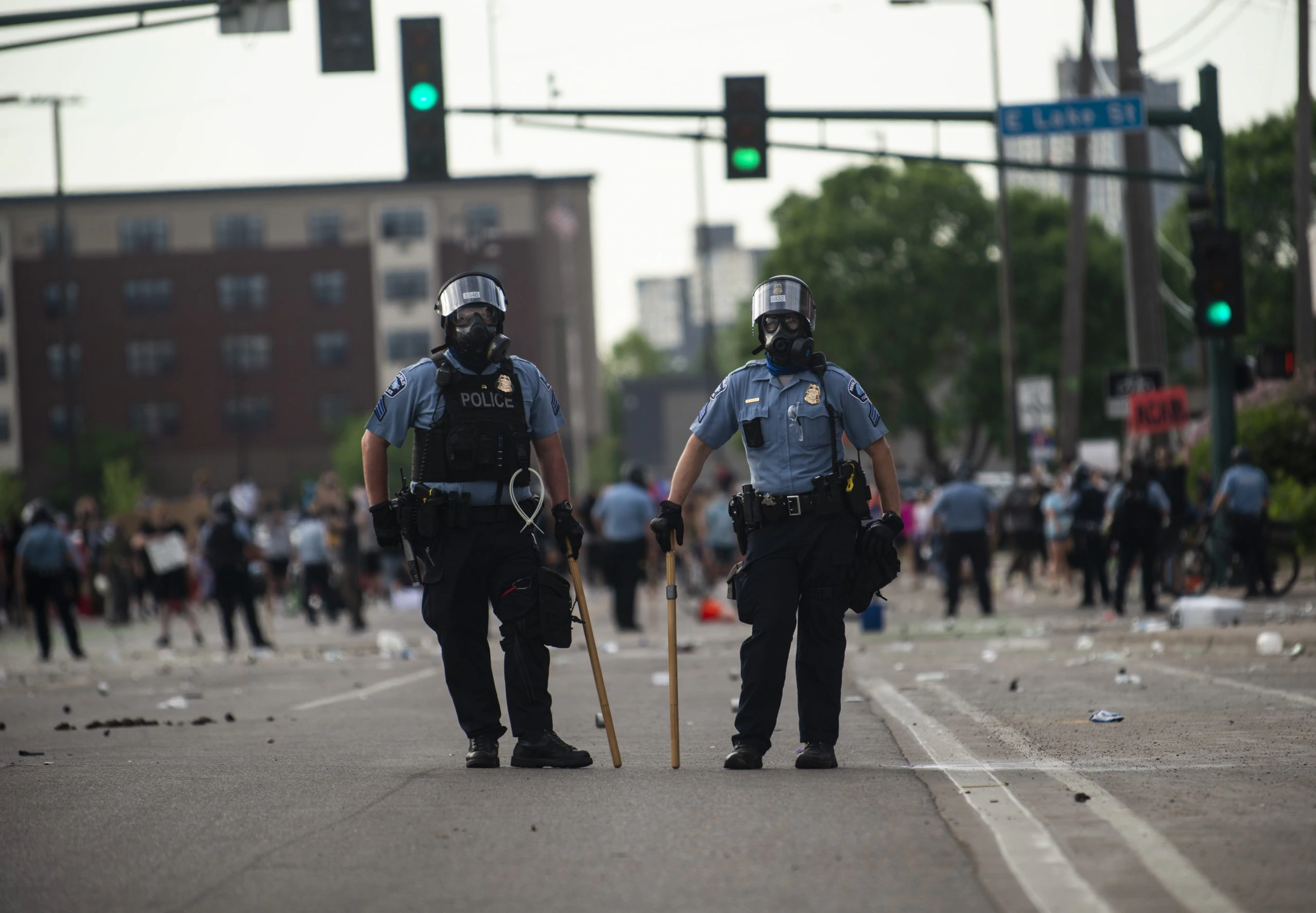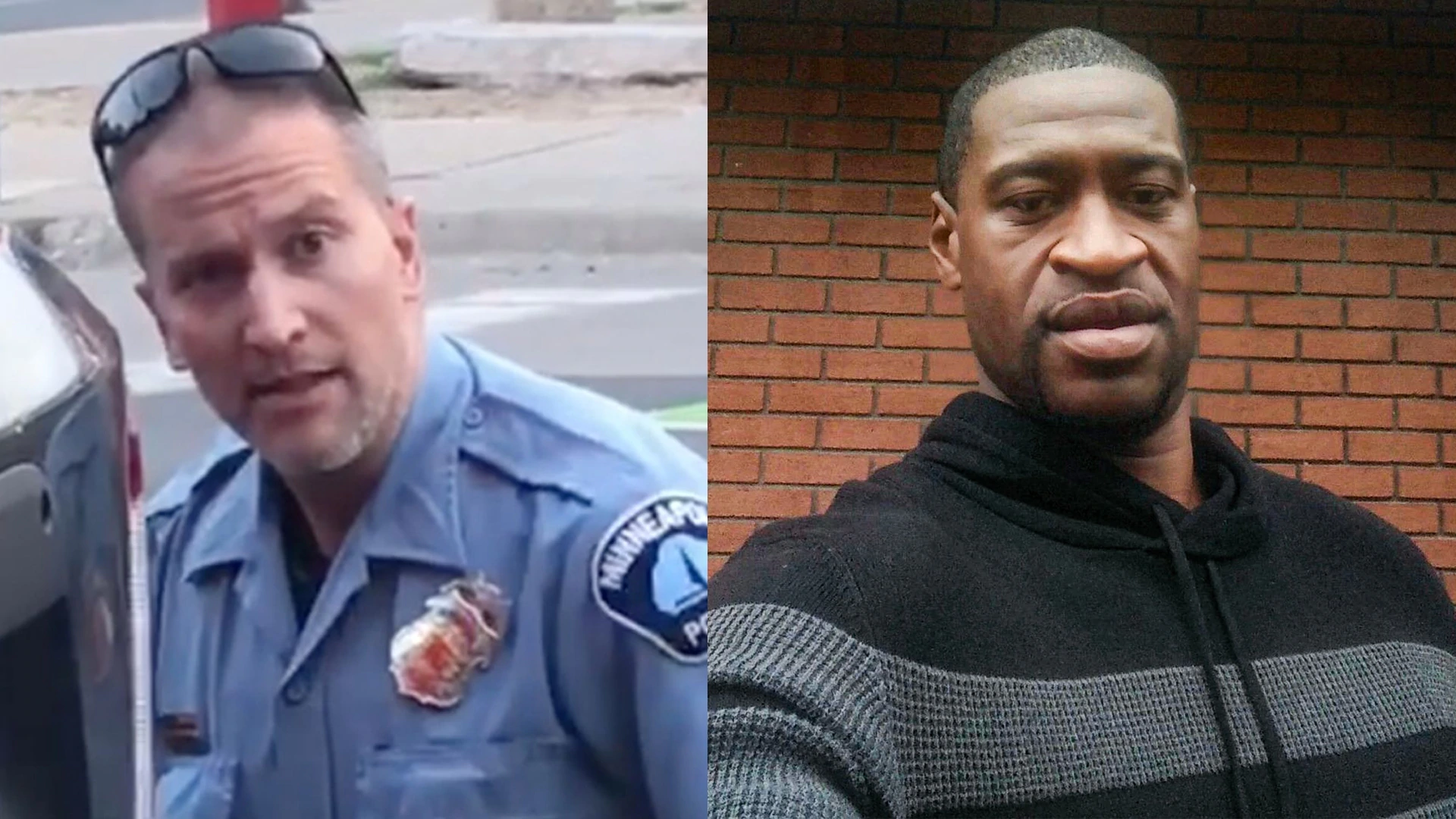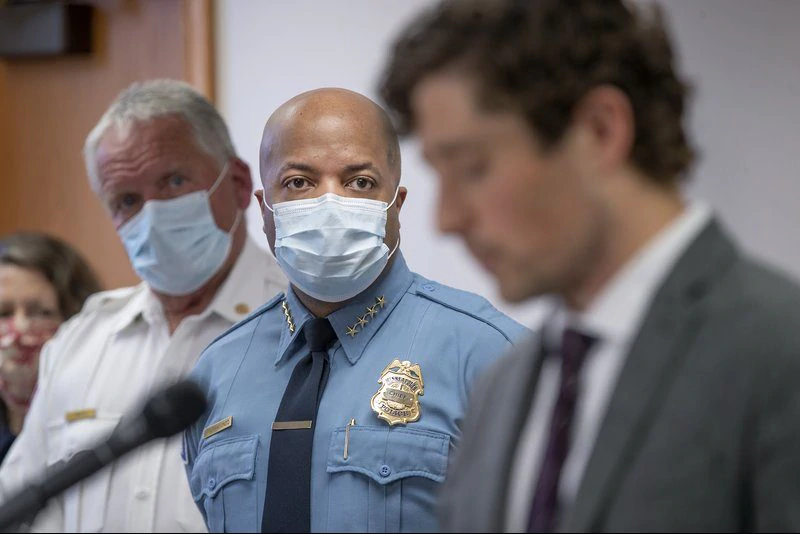[ad_1]

MINNEAPOLIS (AP) — The Minneapolis Police Department will withdraw from police union contract negotiations, Chief Medaria Arradondo said Wednesday as he announced the first steps in what he said would be transformational reforms to the agency in the wake of George Floyd’s death.
Arradondo said a thorough review of the contract is planned. He said the contract needs to be restructured to provide more transparency and flexibility for true reform. The review would look at matters such as critical incident protocols, use of force, and disciplinary protocols, including grievances and arbitration.
He said it’s debilitating for a chief when an officer does something that is grounds for termination, but the union works to keep that person on the job, and on the street.
“This work must be transformational, but I must do it right,” Arradondo said of changes to the department.
RELATED: Minneapolis City Council announces plans to dismantle police department
Arradondo also vowed to use new systems and “real-time data” that would examine officer performance data to quickly spot problem officers and intervene. He said an outside analytics firm would be used to track the data.
“We will have a police department that our communities view as legitimate, trusting and working with their best interests at heart,” he said, adding that the department has to address issues of racism head-on.

Arradondo sidestepped a question about whether he thought union head Bob Kroll, often seen as an obstacle to reform, should step down. He also didn’t directly answer a question about whether citizens should worry about a slowdown in police response time as a pushback against attempts to transform the department. Some City Council members have said in the past that their wards saw such slowdowns when they complained about police action.
Messages left with Kroll were not immediately returned Wednesday.
Floyd died on May 25 after Officer Derek Chauvin pressed his knee into Floyd’s neck, ignoring the handcuffed black man’s “I can’t breathe” cries and staying there even after Floyd stopped moving. Chauvin — a white officer who had 17 complaints against him and was only disciplined once — is charged with second-degree murder, third-degree murder and manslaughter. Three other officers at the scene are charged with aiding and abetting the second-degree murder and manslaughter counts.
Arradondo fired the four officers even before they were criminally charged, while activists took their calls for change to the streets in Minneapolis and beyond. A majority of Minneapolis City Council members called for dismantling the department, but they provided no clear plan on how that would happen.

Mayor Jacob Frey said he would not support abolishing the department, but he would favor a cultural shift in how it functions. He did not get into specifics, but told “Good Morning America” on Monday that the city has difficulty terminating and disciplining officers because of the police union.
Former police Chief Janee Harteau said she received pushback from the union when she was trying to make changes.
Bob Bennett, an attorney who said he has sued the department “hundreds” of times over police misconduct allegations, has said that the union has more sway over police conduct than chiefs do.
RELATED: George Floyd and Derek Chauvin reportedly ‘bumped heads’ while working at nightclub
Arradondo, the city’s first African American police chief, joined the Minneapolis Police Department in 1989 as a patrol officer, eventually working his way up to precinct inspector and head of the Internal Affairs Unit, which investigates officer misconduct allegations. Along the way, he and four other black officers successfully sued the department for discrimination in promotions, pay and discipline.
He was promoted to assistant chief in early 2017, then became chief later that year, after his predecessor was fired for the way she handled the fatal police shooting of Justine Ruszczyk Damond, an Australian native who had called 911 to report a possible sexual assault behind her home.
Many hoped Arradondo could change the culture of a department that critics said too frequently used excessive force and discriminated against people of color. Arradondo made some quick changes, including toughening the department’s policy on use of body cameras. But critics have continued to call for more change.
[ad_2]
Source link

